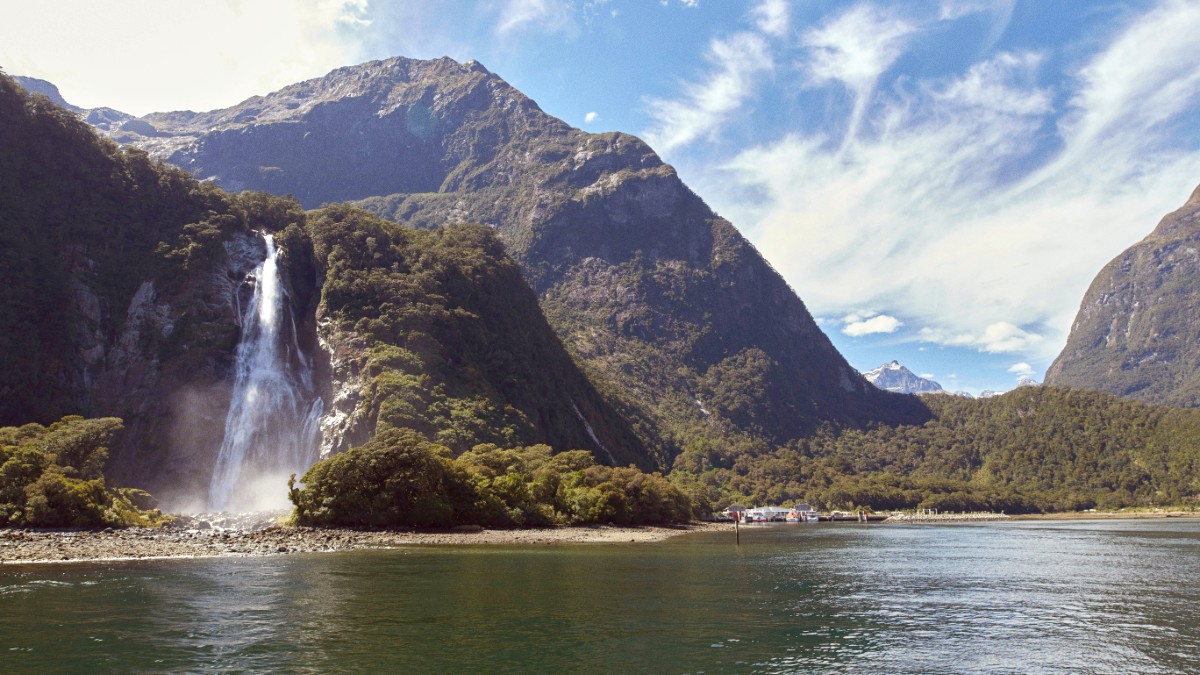
Fiordland And Southland, New Zealand
Milford Sound lies within this vast national park, part of Te Wāhipounamu, the South West New Zealand UNESCO World Heritage site. This designation recognizes its outstanding natural beauty and its geologic and biological significance.
The Department of Conservation (DOC) manages and protects New Zealand's natural and historical heritage. They implement conservation programs, including pest control targeting introduced predators and native plant restoration.
Parts of Milford Sound sit within a marine reserve. Strict rules apply to fishing and marine activities within its boundaries, aiming to protect its unique underwater environment and biodiversity.
The "Leave No Trace" principle is a guiding tenet for outdoor ethics in New Zealand. This means packing out everything you pack in. Do not leave any rubbish behind, including organic waste.
While Fiordland receives immense rainfall, water conservation remains important. Accommodation providers and tour operators implement practices to minimize water use.
Consider offsetting the carbon emissions from your flights and vehicle travel to and from New Zealand and within the country.
When choosing accommodation and tour operators, look for those with strong environmental credentials. In New Zealand, the Qualmark system presents an independent quality assurance and environmental rating.
Observe wildlife (seals, dolphins, penguins, birds) from a respectful distance. Do not approach them or disturb their natural behavior. Feeding wild animals is detrimental and can alter their natural foraging behaviors.
Find sustainable outdoor gear at PatagoniaBefore and after hiking, especially on multi-day tracks, make certain your hiking boots are clean and free of mud, dirt, and seeds. This aids in preventing the spread of invasive species (like Didymo) and plant diseases.
Explore reusable products at Package Free ShopYour choices as a traveler contribute to preserving the unique natural wonders of Fiordland for future generations.
Responsible travel ensures tourism benefits local communities and economies sustainably, while showing respect for cultural heritage.
Māori culture is integral to New Zealand's identity. Efforts are underway to revitalize the Māori language (te reo Māori) and preserve cultural traditions across the country.
New Zealanders are generally friendly and laid-back. A simple "Kia Ora" (hello) is a respectful gesture. Be open to conversing with locals. A relaxed pace of life is valued.
Always ask for permission before photographing Māori people, especially if they are involved in cultural ceremonies or are identifiable. Be cautious when photographing children; always seek parental permission.
While specific religious sites are not present in Milford Sound, if visiting other parts of New Zealand that have Māori marae (meeting grounds) or churches, observe appropriate etiquette.
Responsible travel makes certain that tourism benefits local communities and economies sustainably.
When purchasing Pounamu (Greenstone), make certain it originates from a reputable source that respects Māori ownership and ethical practices. Avoid imitation.
Choose to dine at locally owned restaurants in Te Anau and book tours with New Zealand-owned and operated companies. This keeps revenue within the local economy. Consider G Adventures for ethical tour options.
If you wish to contribute to conservation or community efforts, research reputable local charities or conservation trusts. The Department of Conservation (DOC) welcomes donations for its work. You can also explore organizations like The Rainforest Site for broader conservation contributions.